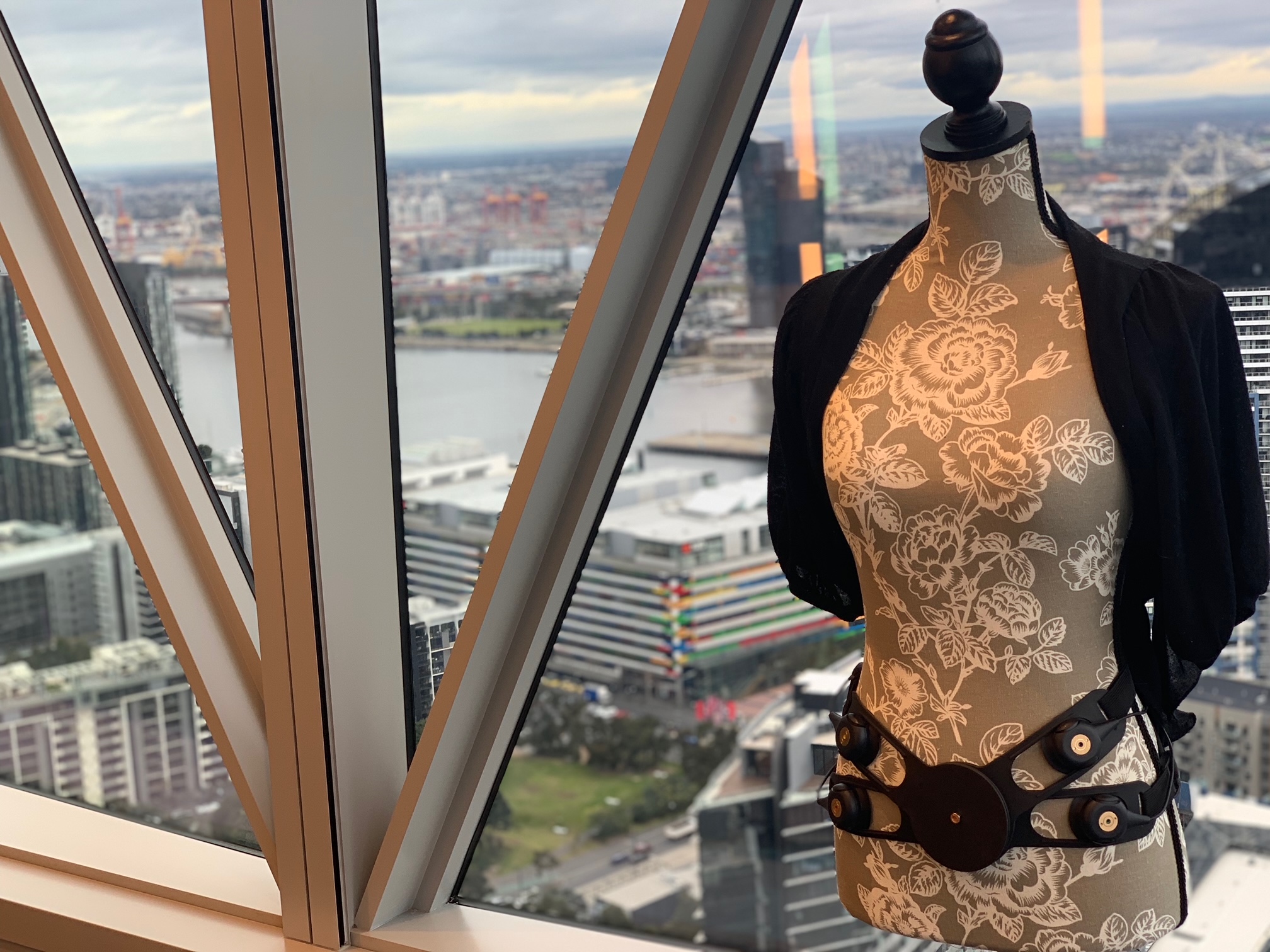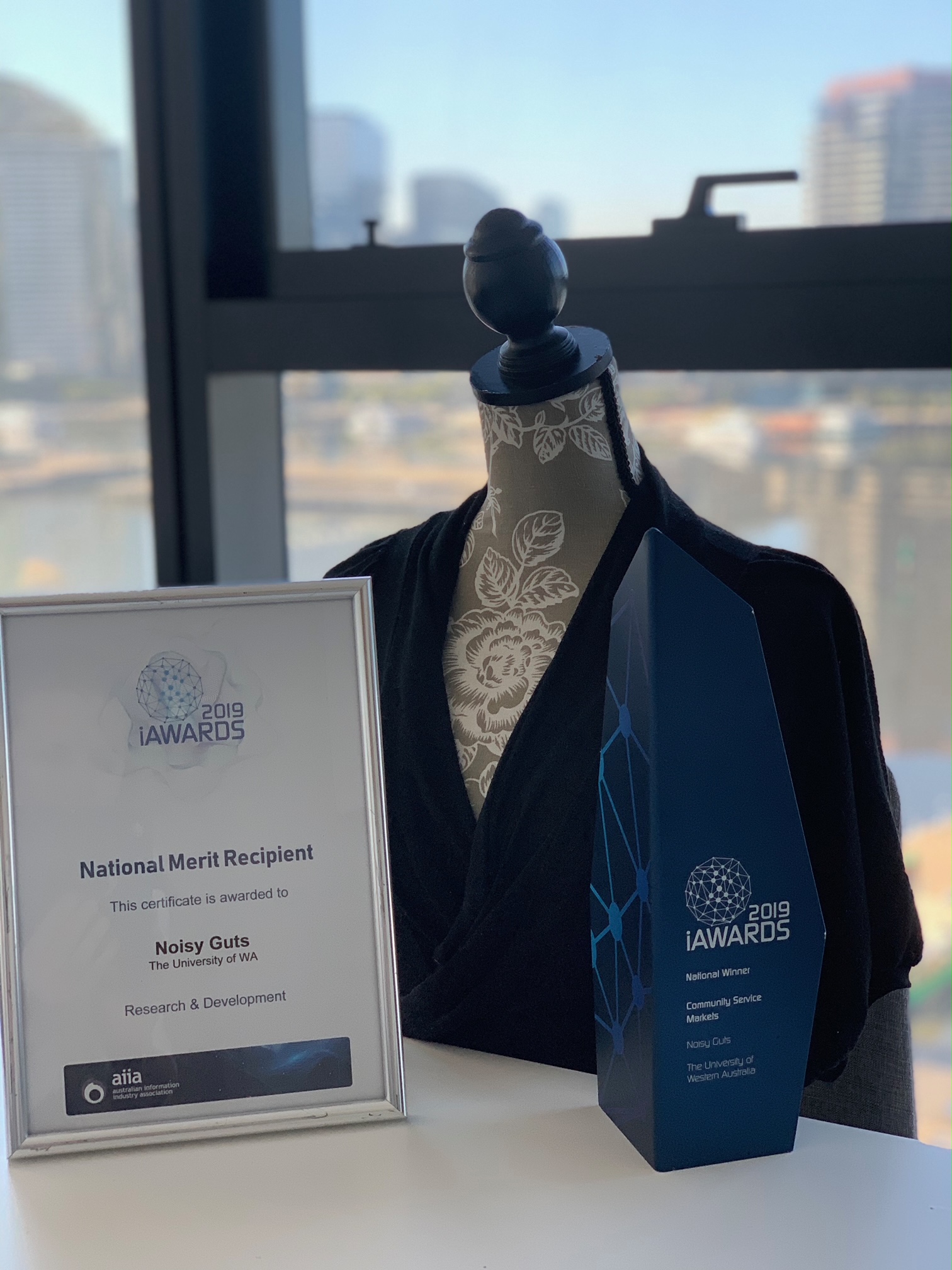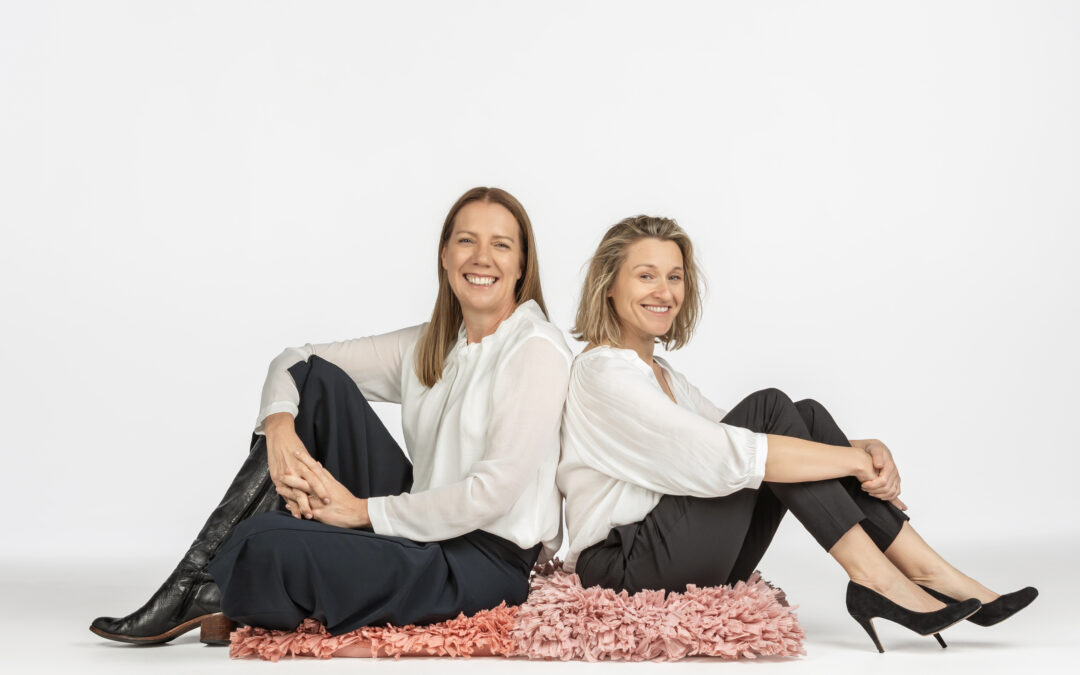What’s the best way to raise $2.5 million for your venture? For Noisy Guts chief executive Dr Josephine Muir and her team, it was hitting the awards circuit and perfecting their pitch to investors. Here’s how they made all the right noises.

Noisy Guts co-founders Dr Jo Muir (left) and Dr Mary Webberley hit the awards circuit to perfect their investment pitch.
Talk less, smile more and make sure you leave with a clear ask. And enter every awards event you can.
That’s innovator Dr Josephine Muir’s advice for perfecting your pitch to potential buyers and investors. And she should know.
The Perth-based co-founder and CEO of Noisy Guts says she became known as the “pitch queen” on the start-up’s quest to raise $2.5 million to develop a non-invasive device that helps diagnose Irritable Bowel Syndrome (IBS), a condition that impacts about 15% of Australians.
Awards run “accelerated” pitching success
So, how many pitches did it take to reach their investment target?
“About 60”, she says. And diving head on into the awards scene helped “accelerate” this process. “I looked at all the awards available and we entered everything.”
Once at an event, she grabbed every opportunity to network, including taking photos of event seating plans and then “stalking” potential investors on LinkedIn.
“Awards and competitions are all a piece of that [capital raising] puzzle,” she says. “They are a very supportive environment. It’s not a competitive environment and you meet people who can help your business.”
iAward wins boost networking opportunities
During its awards run, Noisy Guts won two iAwards at the National Ceremony in 2019. Both awards (in the R&D and Community categories) recognised its work to develop a wearable device that analysed bowel sounds to help diagnose IBS and gut disorders.
That idea was sparked by Laureate Professor Barry Marshall, who is the company’s medical adviser. Dr Mary Webberley is its chief scientific officer and co-founder with Josephine.
Josephine says the PR and media coverage from award wins combined with event networking – she thinks the iAwards National Ceremony was the biggest event – meant that every investor in Perth had soon heard of Noisy Guts.
Yet there were challenges to promote their innovation. This included finding a practical way to show investors how the wearable device worked; Josephine having to lift her shirt to expose the device fitted around her waist wasn’t ideal.
That problem was solved by “Flora”, a smartly dressed and very portable mannequin for which the device was a perfect fit.

“Flora” displaying the sound monitoring wearable device

“Flora” with the team’s iAward certificate and trophy
Learning to pivot – and grow
While the wearable device unearthed valuable information from about 300 clinical trial participants and hundreds more surveys, Noisy Guts has switched its focus to using digital markers to develop a more accurate and cost-efficient diagnostic tool. It has also produced a range of functional food products specially formulated to boost gut health.
The team takes pride in its scientific credentials (Josephine was associate director of the Marshall Centre for Infectious Diseases at The University of Western Australia) and applies a science-backed approach to its products. This is vital in a market awash with “snake oil” wellness remedies, Josephine says.
It’s been a wild ride, including managing the impacts of covid and floods. But this first-time start-up founder says entrepreneurs need to be able to “pivot” and be “comfortable with the chaos” to keep their business alive.
Josephine’s top 3 pitching tips:
A quick re-cap of Josephine’s golden rules for the perfect pitch:
Talk less: Stand back and look at your key messages. Wait for them to land. All you need to do is spark enough interest in an audience for them to want to talk to you afterwards.
Smile more: Why not?
Leave with an ask: The real gold is not the time allocated to pitch, it’s the time you get over the next coffee with an investor. And when you’re finished, leave with a clear ask – for their investment, advice or another introduction.





